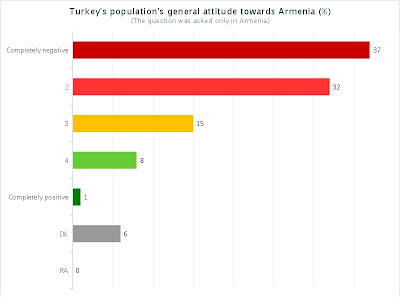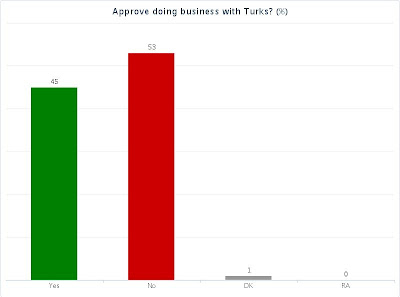Positive expectations abound in Georgia around the potential impact of the Deep and Comprehensive Free Trade Area (DCFTA) Agreement with the EU. Yet, it is still unclear if the agreement’s trade-related components have increased trade. According to CRRC-Georgia’s Tax Perceptions Survey conducted from September to November 2015 for USAID’s Governing for Growth (G4G) project, only 6% of surveyed companies traded with the EU under the DCFTA Agreement. Moreover, according to the same survey, most Georgian companies report not being interested in trading in the DCFTA. This is a troubling finding, since, by law, all Georgian companies will eventually have to comply with DCFTA standards whether they export or not. That is to say, even if companies are not interested in exporting to the EU, the standards of their products will still need to increase. This will benefit consumers in the long run, but may hurt companies in the short term during the period of approximation of Georgian legislation with the EU’s.
When looking at the difference in absolute value of exports from Georgia to the EU one year before the agreement entered into force (September 2013 to August 2014) and the year after (September 2014 to August 2015), we see that it fell by 10% in US dollars, while the value of imports from the EU increased by 2% in USD. While the devaluation of the lari could be one explanation why the value fell, there was still a 7% drop in exports valued in lari. This decrease in exports is unexpected, given that DCFTA removed almost all tariffs between the EU and Georgia.
This change can be partially explained by the value of exports fluctuating from year to year. The value of exports was particularly high during the period of September 2013 to August 2014, 61% higher in respect to the preceding 12-month period.
In addition to the absolute value of exports to the EU declining after the implementation of the DCFTA, the share of Georgia’s exports heading to the EU has not increased substantially either. Between September 2012 and August 2013, 17% of Georgia’s exports went to the EU. In the subsequent 12-month period, the respective share was 25%, and increased to just 26% in the year following DCFTA’s implementation in September 2014. That is to say, following DCFTA, the share of Georgian exports going to the EU increased by only one percentage point.
The EU is an important trade partner for Georgia, and the DCFTA should lead to increased trade between the EU and Georgia over time. However, it appears that it is yet to bear fruit in terms of exports to the EU. One factor that may be contributing to this is that, to a certain extent, the Government of Georgia has taken an "if we build it, they will come" approach to the implementation of the DCFTA. While the Ministry of Economy and Sustainable Development of Georgia provides information to companies that want to export, there are few tailored forms of promotion outside general awareness-raising. This may explain why CRRC survey findings show that a majority of companies, even many of those involved in external trade, report to be uninterested in the DCFTA.
The Tax Perceptions Survey showed that 90% of surveyed companies do not trade under the DCFTA regime. Of these companies, 69% said it was because they were not interested, 11% because they did not know about it, and 8% because they could not satisfy the terms.
It makes sense that not every company would trade under the DCFTA agreement - a corner shop, for example, is unlikely to have a product to export after all. However, companies that export also expressed disinterest. Seventy percent of these companies reported they do not take advantage of the DCFTA and almost half (46%) reported they were not interested in it.
This lack of interest is a clear issue. The DCFTA Agreement will eventually require the approximation of Georgian legislation with the EU’s, and the vast majority of companies will need to comply with the terms of the agreement. Although this will result in improved quality of many products on the Georgian market, it will also create additional costs for businesses. Without greater interest in exporting, these costs will not be offset by the increased trade, potentially bringing pain upon the local economy.
The survey didn’t ask about why companies are not interested in the DCFTA. Hence, further research should be done to gather comprehensive information on the issue. In the meantime, the EU and the Government of Georgia should be alert to the fact that targeted outreach is needed to encourage companies to meet DCFTA requirements and provide support to make this process as painless as possible. Outreach should also target exporters to explain to them how they can benefit from the DCFTA.























 Although you could do the maths, CRRC household data does not provide direct figures on the total number of cell phones. This statistic is offered by the
Although you could do the maths, CRRC household data does not provide direct figures on the total number of cell phones. This statistic is offered by the 



